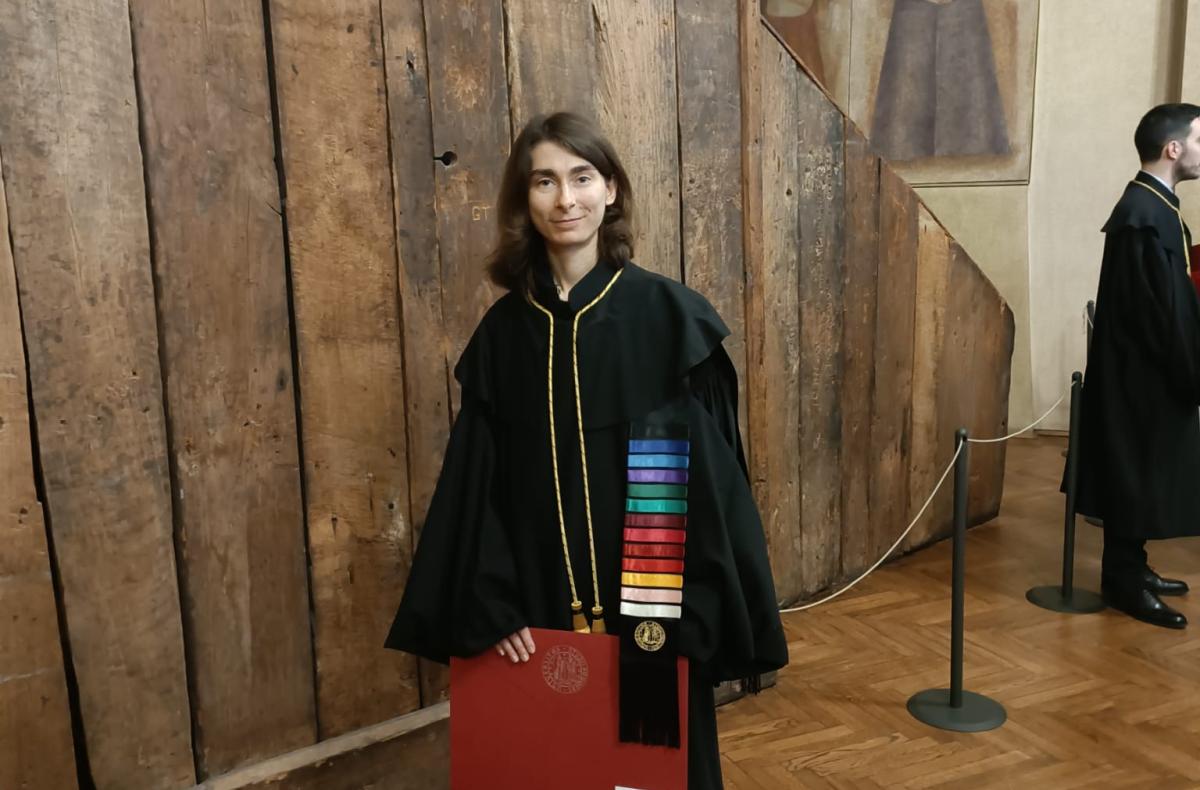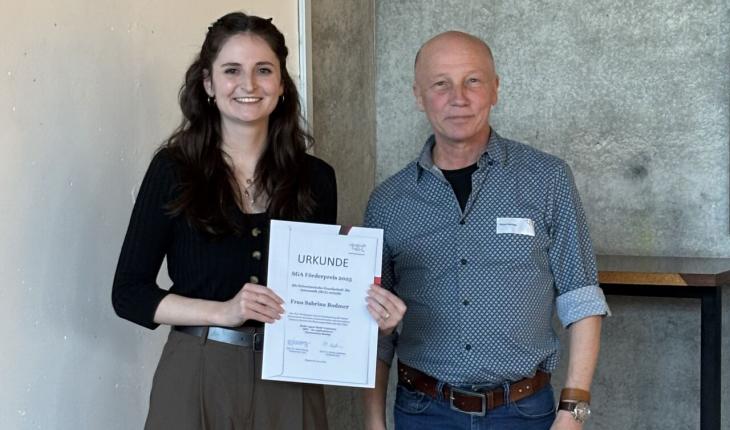#NCCRWomen: Anna Scampicchio

Why did you choose a scientific career?
I did not really choose it. After the high school diploma, I wanted to pursue a medical education, but failed in passing the admission exam. Then, I (quite recklessly) enrolled in a bachelor’s programme in biomedical engineering, appealed more by the name than by exactly knowing what it was about. The first year was shared with other information engineering programmes and mainly consisted in the basic courses like Calculus, Physics, Algebra, and Geometry. I surprisingly fell in love with them! Thus, I changed my course and enrolled in the more theoretical programmes, graduating in Information Engineering and Control Engineering with a Bachelor’s and Master’s, respectively. I also discovered a passion for research and teaching, and this is why I pursued a Ph.D. and now continue as a postdoctoral researcher.
If you weren't a scientist, what would you be?
To me, being a scientist means to study and go deep into any subject. So, I would be a scientist in any other field I find interesting. I would also probably be a musician, cartoonist, or professional dancer.
In simple language, explain what you do for your NCCR.
I am a postdoctoral researcher in an NCCR-affiliated group (specifically, Prof. Zeilinger’s lab at ETH). The subject of my research is dynamic systems, i.e., anything that takes some quantity in input, elaborates it together with other variables, returns some other quantity in output, and evolves over time. This description is quite general because it can capture a huge variety of phenomena, such as the glucose-insulin levels in your blood, an electrical circuit, or the motion of a bicycle on a road. The latter are just examples: my research is mainly theoretical. I work with mathematics and statistics to answer questions like: “which equations can describe this complex dynamic system?”, “if I have a new input, can I build some technique based on previously observed data to predict how the output will look like?”, “how reliable is the technique I developed?”, “how can I design an input so that I obtain the desired output?”. In my jargon, keywords related to these questions are system identification, estimation, and control theory.
What does your typical day at work look like?
I mostly spend the day studying research articles, called papers, and books, and then letting all elements come together. This results in two main scenarios: (1) building new techniques, studying their properties, and testing them in simulation or on real data; (2) applying and adapting my existing theoretical tools to new contexts. If the outcome is good, then I write a paper explaining the methods and showing the results. As further activities, I also supervise students and do peer-reviewing (that is, I review the work of other scientists in the world before it gets published).
What do you like to do outside the lab?
I have many interests outside the lab. I like to play music (clarinet, accordion, piano), dance tango, do endurance sports, draw, and shoot analogue photos.
What is the worst thing about your chosen career path?
In academia, one of the worst things is the uncertainty about the future. Between the end of your doctoral thesis and becoming a professor, you need to perform several short-term research positions, called postdoctoral studies. Ideally, you will move to different universities and countries to experience diverse ways of working and working on different research topics. Since there are few faculty positions, it remains uncertain to become a professor. Moreover, there is a constant pressure for publications due to the highly competitive nature of academic careers.
What would you like to say to your younger self about a scientific career?
It’s your dream job because you are passionate about free thinking: you will be able to pursue your ideas, go deep into beautiful abstractions and there express your creativity.
Is there anything surprising/unexpected about you (professional or personal)?
At high school I wanted to become a professional clarinet player and I studied hard for that. When I changed my mind after some unpleasant experiences and was thinking about university, I knew that I would never pursue Law, Economics or Engineering. And then I got a Ph.D. in Information Engineering… but let’s say that at that time I did not know what control engineering/theory was, and that Mathematics is something better and deeper than the exercises you are asked to solve in school.
Who was your mentor or role model who inspired you?
I’ve had the honor to have excellent mentors and it would take too long to mention them all. In general, the people who inspire me are the ones that can express themselves not just in their job but in all the relevant aspects of their lives. I have the luck of having a lab head, Professor Melanie Zeilinger, that is a role model for this.
What was the best or worst advice you ever got?
Difficult to say. The only thing I know is that no advice can be called such if you understand it immediately – otherwise it would be just a confirmation of an idea that you already have.
We are sharing profiles of women researchers within NCCR Automation as part of the #NCCRWomen campaign. You can find out more about the campaign on YouTube, Twitter or Instagram.



